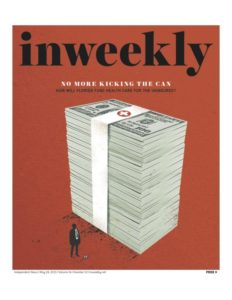
By JIM SAUNDERS
THE NEWS SERVICE OF FLORIDA
After months of wrangling about the issue, a top federal official Tuesday outlined a deal to continue Florida’s Low Income Pool health-funding program for two years.
Federal official Vikki Wachino sent a letter to state Medicaid director Justin Senior that said an agreement “in principle” has been reached about the size of the program and how money will be divvied up among hospitals and other health providers.
Many of the details reflect preliminary information released last month and used by lawmakers in drawing up a state budget that was signed into law Tuesday by Gov. Rick Scott. Those details include $1 billion in so-called LIP funding for the fiscal year that starts July 1 and a drop in funding to $608 million for the fiscal year that starts in July 2016.
The Low Income Pool, which has totaled $2.2 billion during the current fiscal year, sends additional money to hospitals and other providers to help cover the costs of treating uninsured and poor patients. The program had been scheduled to expire June 30, touching off political and legal battling about the issue.
Wachino, director of the federal Centers for Medicare & Medicaid Services, said in the letter Tuesday to Senior that she was “writing to memorialize our discussions to date on Florida’s request to extend” the federal authority for the program. The letter also indicated agreement that program funding “should not pay for costs that would be covered in a Medicaid expansion.”
The letter also took note that Florida lawmakers had agreed to spend $400 million in state tax dollars to help offset the cuts in LIP funding. That money will draw down federal matching funds to boost Medicaid payments to hospitals.
Part of the debate in recent months stemmed from uncertainty about how much money would be available to help hospitals cover the costs of caring for uninsured patients. But the issue became tangled in a fierce political battle about a state Senate plan to use federal Medicaid money to offer health coverage to hundreds of thousands of uninsured Floridians — a plan that House Republican leaders opposed and, ultimately, killed.
During the course of the debate, Scott filed a lawsuit contending that the Obama administration was unconstitutionally trying to link extending the LIP program with a Medicaid coverage expansion. That case remains pending in federal court in Pensacola.
Wachino’s letter said a final agreement on the LIP extension can be reached after a federal comment period ends Saturday. But even if that plays out, Senate leaders have warned that the Legislature will again be confronted with difficult health-funding issues.
That likely will be evident during the 2016 legislative session, as lawmakers face another cut in LIP funding to $608 million.
“Certainly, the health-care issue is not going away,” Senate President Andy Gardiner, R-Orlando, said last week.



